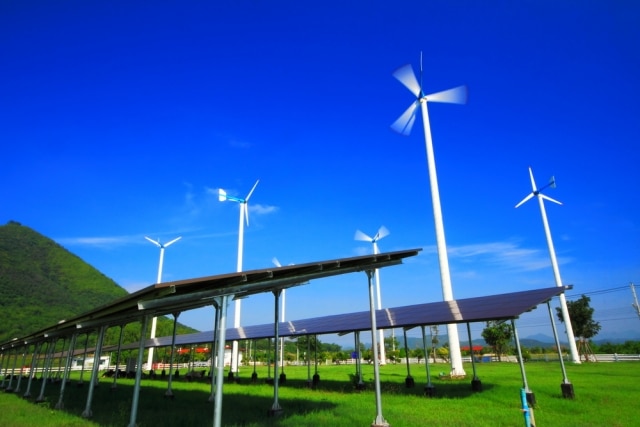The mainstreaming of renewable energy is happening even faster than projected.
According to the latest “Electric Power Monthly” report from the U.S. Energy Information Administration, which includes data through the end of 2014, some 13.91% of electricity generation in the U.S. last year was from renewable sources.
“Given current growth rates, especially for solar and wind, it is quite possible that renewable energy sources will reach, or exceed, 14% of the nation’s electrical supply by the end of 2015,” noted Ken Bossong, executive director of the SUN DAY Campaign. “That is a level that EIA, only a few years ago, was forecasting would not be achieved until the year 2040.”
That number includes conventional hydroelectric power, which comes with severe environmental impacts of its own and is not generally considered a true “clean energy” source (the same can be said of biomass and biofuels, which is also included). So it’s worth noting that 2014 was the first year that electricity generation from non-hydropower renewable energy sources exceeded hydroelectric generation.
Wind energy continues to be the biggest clean energy source by far, supplying some 4.45% of 2014 electricity generation in the U.S. versus .45% from solar and .41% from geothermal. But solar is making great strides, seeing more than 100% growth last year while wind grew just 8.3% and geothermal by just 5.4%.
Coal and nuclear energy grew by .3% and 1%, respectively, while natural gas actually dropped, as did hydropower.
The EIA does not fully track rooftop solar energy generation, so these numbers understate solar’s contribution to the U.S. energy mix. According to the Solar Energy Industries Association, there are nearly 600,000 homes and businesses generating their own energy through solar systems.
In fact, in 2014, a new solar project was installed every 3 minutes, the SEIA says.
The rise of rooftop solar systems has led to major benefits for the environment and the economy, but does not sit well with traditional utility companies who see their monopolies on providing electricity slipping away.
High-profile corporatists like the Walton family and the Koch Brothers have begun to attack the distributed energy generation model altogether, as have the utilities—though in many cases, the utilities have decided it’s easier to co-opt the business model than to fight it.
In fact, efforts to beat back the advance of solar energy have become so aggressive that it’s now described as a “war on solar”—a riff on the “war on coal” meme, except the war on solar is real and has drastic implications for the future.
Image Credit: kongsky / Shutterstock.com
Subscribe to our newsletter
Stay up to date with DeSmog news and alerts






